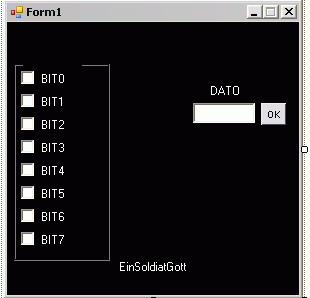Jun 17, 2004 Dev C Clear Screen I just downloaded Dev c because the complier i was using (TC LITE) didn't allow me to make exe files. It also wasn't windows based which is a pain editing in. What i am trying to do is get it to use clrscr. It doesn't acctully tell me how to set up dev to use the clrscr function, it only says that some compilers. Jan 16, 2019 How to Create a C Function. In computer programming, functions are a set of codes. Many functions are predefined in C, Like, clrscr; and perror, but users can also define their own functions. When the same set of tasks is to be used. Clrscr and Getch in C. Clrscr and getch both are predefined function in 'conio.h' (console input output header file). Clrscr It is a predefined function in 'conio.h' (console input output header file) used to clear the console screen. It is a predefined function, by using this function we can clear the data from console (Monitor). Clrscr is a function call.(some people call it an “executable”). In old C standard, all variables of block must be declared before any operation including function call. You're Welcome. Also, with my experience with DevC, getting 3rd party libraries are a pain. This is just a suggestion, but if you are unhappy with DevC, try CodeBlocks IDE.
- C++ Basics
- C++ Object Oriented
- C++ Advanced
- C++ Useful Resources
- Selected Reading
A switch statement allows a variable to be tested for equality against a list of values. Each value is called a case, and the variable being switched on is checked for each case.
Syntax
The syntax for a switch statement in C++ is as follows −

Dev c++ tutors. The following rules apply to a switch statement −
The expression used in a switch statement must have an integral or enumerated type, or be of a class type in which the class has a single conversion function to an integral or enumerated type.
You can have any number of case statements within a switch. Each case is followed by the value to be compared to and a colon.
The constant-expression for a case must be the same data type as the variable in the switch, and it must be a constant or a literal.
When the variable being switched on is equal to a case, the statements following that case will execute until a break statement is reached.
When a break statement is reached, the switch terminates, and the flow of control jumps to the next line following the switch statement.
Not every case needs to contain a break. If no break appears, the flow of control will fall through to subsequent cases until a break is reached.
A switch statement can have an optional default case, which must appear at the end of the switch. The default case can be used for performing a task when none of the cases is true. No break is needed in the default case.
Flow Diagram
Example
This would produce the following result −
Function getch in C program prompts a user to press a character. It doesn't show up on the screen. Its declaration is in 'conio.h' header file. The function is not a part of standard C library.
C programming code for getch
#include <stdio.h>#include <conio.h>
int main()
{
printf('Waiting for a character to be pressed from the keyboard to exit.n');
getch();
return0;
}
When you run this program, it exits only when you press a character. Try pressing num lock, shift key, etc. (program will not exit if you press these keys) as these are not characters.
Try running the program by removing getch. In this case, it will exit without waiting for a character hit from the keyboard.
How to use getch in C++
#include <iostream.h>#include <conio.h>
How To Declare Clrscr In Dev C 2017
int main()
{
cout <<'Enter a character';
getch();
}
Using getch in Dev C++ compiler
Function getch works in Dev C++ compiler but it doesn't support all functions of 'conio.h' as Turbo C compiler does.
Function getchar in C
#include <stdio.h>int main()
{
int c;
c =getchar();
putchar(c);
return0;
}
Clrscr In Codeblocks
A common use of getch is you can view the output (if any) of a program without having to open the output window if you are using Turbo C compiler or if you are not running your program from the command prompt.